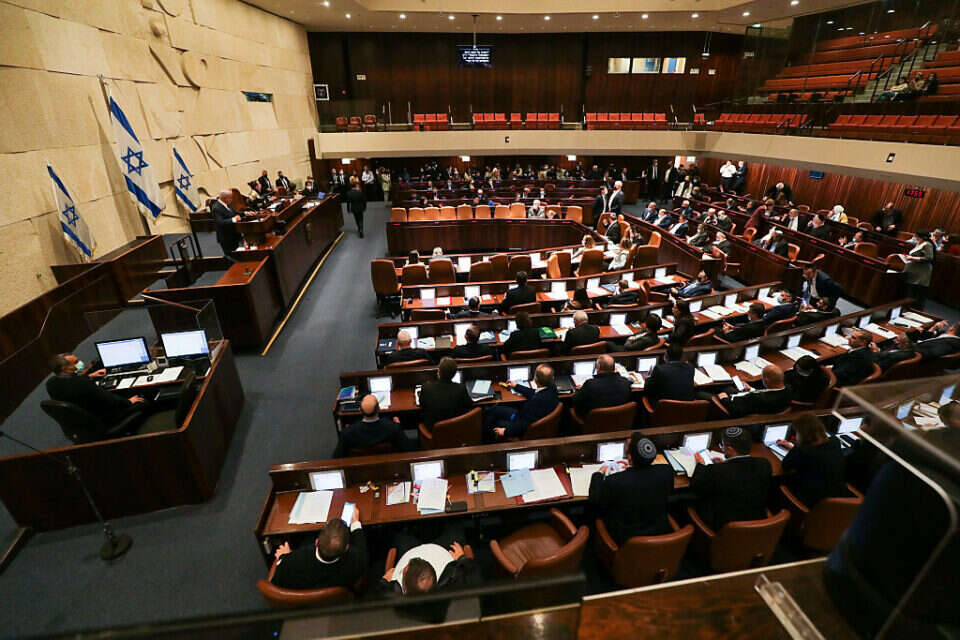It is not known how the crisis in the coalition will end, but there is reason to believe that sometime after the Knesset recess it will shorten the days of government.
It is a very right-wing government from a socio-economic point of view, not politically competent in the opinion of many and shamefully subject to the domination of jurists, as demonstrated in the rendering of the "espionage affair" for citizens.
It would be better for her days to be shortened.
On the other hand, the crisis heralds the disruption of the functioning of the entire country, and perhaps the inability to form a stable government even after elections.
This is just a link in a chain of cyclical instability in our democracy, at least since Shimon Peres' "stinking exercise" in 1990 (his failure to buy right-wing MKs to form an alternative government), and such "successful" buying practices by Yitzhak Rabin in 1995. Stability began even earlier.The 1981 election was the last time a political bloc received a mandate from voters to rule, but it ended three years later in the unity governments (1990-1984), which were in themselves a "band-aid" for instability.
In fact, our political-partisan regime suffers from structural instability because of the extremist electoral system in the Knesset.
It was stable only when there was an unchallenged ruling party, Mapai, followed by Labor. Although most DAS voters did not want a right-wing government. Indeed, his 1981 victory ostensibly established the Likud as an unshakable ruling party, like the Labor before it, and as if stabilizing our democratic regime despite the disastrous electoral system - but not really. The political hegemony of The right has been weaker than its predecessor, so for more than 30 years we have been in varying degrees of coalition instability, steadily weakening governance, representative politics and people's sovereignty, and our democratic statehood.
Our extreme relative-national electoral system is an important and direct, though not the only, reason for instability and unsuccessful governance in Israel.
Over the years, this method has been smashing the political arena into medium-sized, small and tiny parties.
The Likud is a ruling party that in the last election campaigns came to the power environments of Labor when it was defeated in the 1977. Elections not facing a competing ruling party.
Occasionally one gets up, and crashes quickly.
Yesh Atid, the business-political venture owned by Yair Lapid who impersonates the party, is failing to grow beyond a medium-sized faction in the Knesset.
Crushing our party arena fosters a political bestseller, the dire consequences of which are, first, a continuing sabotage of the status of elected officials, presented as a commodity passed to the merchant, devoid of commitment to ideology or voters;
And secondly, clearing the way for forced and unrepresentative rule of officials, jurists and officers, which does not depend on the wishes of the public.
True, such disintegration occurs not only in us.
In France and Italy the two alternate governing parties were effectively wiped out, and in Germany they weakened dramatically.
But in two very important democracies there has been no such crushing - in the US and the UK, if modern democracy. True, both suffer from other aspects of the overall crisis plaguing democracies (e.g .: censorship, intensification of anti-democratic forces). But their party arena is an instability. , And this is clearly a result of the system of regional-regional elections in a presidential and federal (US) or parliamentary (UK) regime, which fosters two broad and diverse parties.
The democratic regime is now threatened in many countries.
But it is precisely in the face of the danger that structural hoops, such as the regional-majority electoral system, which ensures a stable and representative bipartisan regime, are of paramount importance.
Israel's situation necessitates overprotection of the democratic regime, and it is precisely the relative system that endangers it even more.
Will we have someone to deal with the challenge?
Were we wrong?
Fixed!
If you found an error in the article, we'll be happy for you to share it with us

